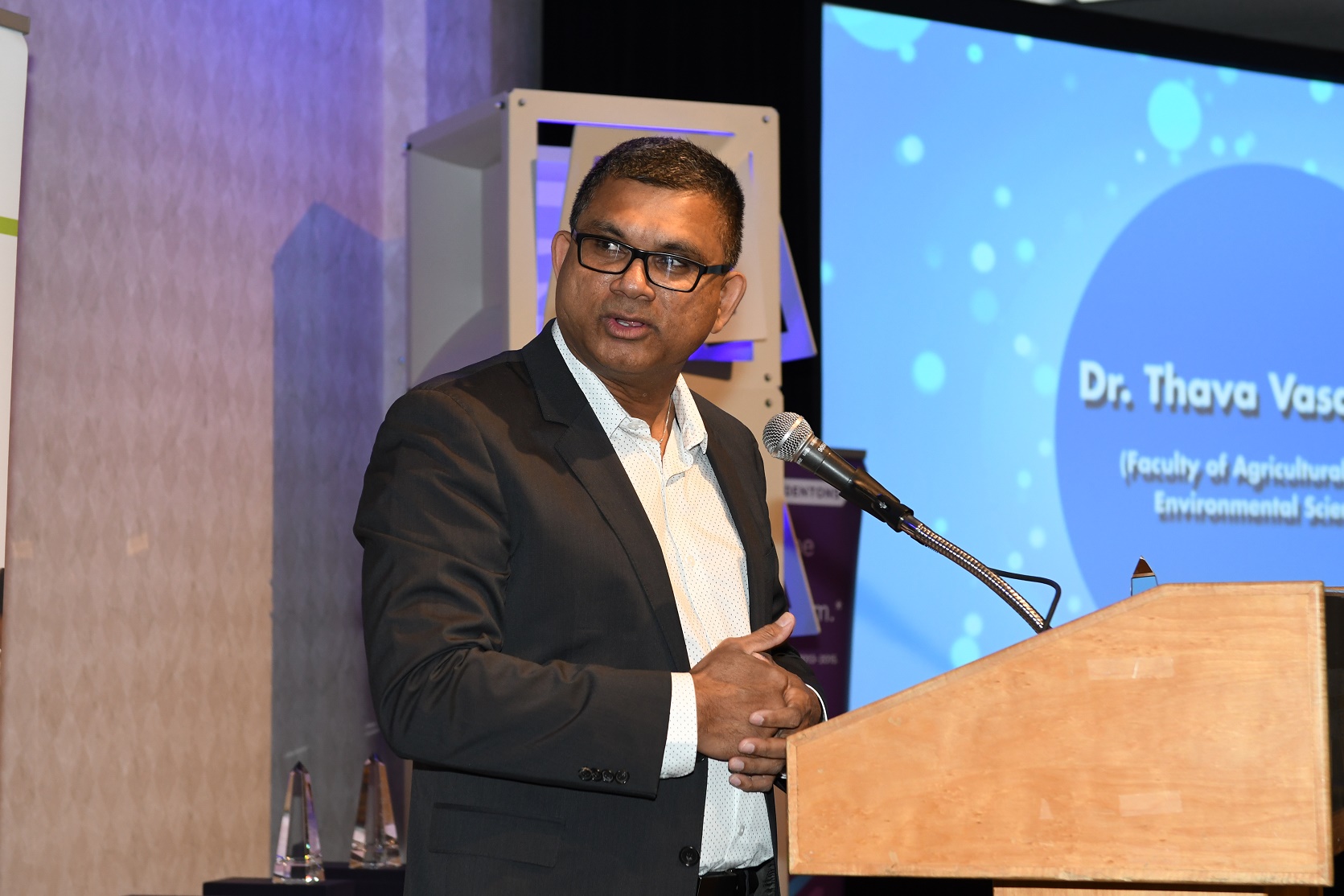
Thava Vasanthan, a professor of grain science and technologym won a Spin-off Achievement Award at TEC Edmonton's Innovation Makes Sense event for starting GrainFrac, which commercialized a dietary fibre from barley grains.
Behind every great invention is a clever mind and the spotlight shone this month on four such combinations from the Faculty of Agricultural, Life and Environmental Sciences.
Researchers David Bressler, Jonathan Curtis, Thava Vasanthan and Allan Schaefer were recognized at Innovation Makes Sense, an annual event to honour UAlberta researchers who in the past year successfully received patents or were instrumental in spin-off companies from their research.
The event was held by the technology incubator TEC Edmonton. With a mandate to help world-class researchers bring their groundbreaking technologies out of the lab and into the community, TEC Edmonton hit home runs with all four ALES scientists.
"The number of patents and spin-off companies coming from the Faculty of ALES this year support their consistently high commercialization activity," said Chris Lumb, CEO of TEC Edmonton.
"These achievements played a significant role in helping the U of A achieve its ranking this past year among the top 100 universities in the world for U.S. patents, and we congratulate each of the researchers on their success."
Bressler, a professor of microbiology and cell biotechnology and director of the Biorefining Conversions Network, was applauded for receiving two patents.
One is for a revolutionary biomass process that produces gasoline and diesel fuels from dirty cooking oils, crop seed oils, and animal fats. The gas and diesel molecules produced by this method have as much energy or octane power as gas or diesel from crude oil.
His second patent, developed with Phillip Choi from the Faculty of Engineering, turns waste animal proteins into plastics through a process that hydrolyzes the material to break down proteins that are then bound together.
Meanwhile, Curtis, an analytical chemist who leads the Lipid Chemistry Group, received a patent for developing a method of producing polyols from canola and other locally grown oils. These polyols can be used in making polyurethane materials such as foams, coatings and more. The technology has already been licensed to the British Columbia-based company that has built a small production facility and canola polyols will soon be sold to an Edmonton-based company for making rigid polyurethane foam building insulation.
Spin-off Achievement Awards went to both Vasanthan, a professor of grain science and technology, and Schaefer, an adjunct professor in animal science.
Vasanthan founded GrainFrac Inc. in 2014. The company's patent pending technology allows the extraction of beta glucan from barley grains in a way that's far more cost-efficient for food producers. Cereal beta-glucan, a soluble dietary fibre, is an all-in-one natural ingredient with multiple scientifically proven health benefits. The company's flagship product is Cerabeta™, a cereal beta-glucan concentrate.
Schaefer's company Animal Inframetrics is developing and commercializing newly patented infrared thermography technology that can detect herd health issues across several species of livestock, well in advance of typical clinical symptoms. The technology, created in collaboration with UAlberta researcher Clover Bench, may also be used to sort and feed animals based on metabolomic performance and is attracting interest from multinational companies focused on livestock performance.